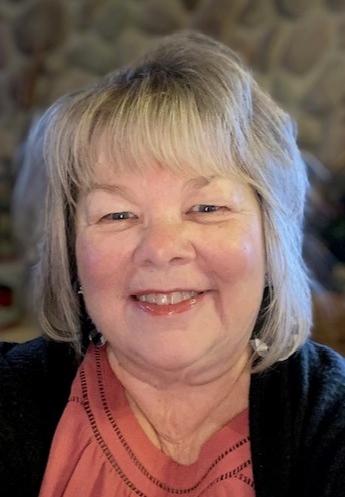
There are many challenges of Navigating the Healthcare System. Finding your way to the resources can be hard. With so many changes happening in the healthcare industry, it can be difficult to keep up. You may feel overwhelmed or like you don’t have enough information to make informed decisions about your health. Accessing providers and understanding your options can be a challenge and you may feel like you’re being let down or abandoned by the system.
It’s important to remember that you are not alone on this journey and there are resources available to help you. Let’s explore some of these resources further but first let me share a couple of stories so you know you are not alone. For information about our resource directory please click here.
As a nurse for over 40 years, I have witnessed so many challenges of families trying to find their way out of the weeds of our healthcare system. A couple of stories come to mind I would like to share. One of our former clients, through talking with people in our area, learned I was a nurse advocate and reached out.
She said her husband was in the hospital with chronic obstructive pulmonary disease or COPD. She was told at the hospital that there was nothing more anyone could do, and he was ready to be discharged. She was offered hospice, but this was all so new to her, and she was not ready for that. She didn’t feel comfortable taking him home. He was going to go home on oxygen, and she was afraid. She was completely unprepared. She had a large family of children who were very supportive, but they needed guidance and support. She made the call to me and said, “Can you please help me, I don’t know what to do.”

A second story regarding another client called me one day and asked me to come over. I knew her from church, but she hadn’t been there in a while. I stopped by as she requested, and she began to share her story about slowly losing her memory. She stopped going to church because she was afraid, she would not remember the names of her friends she had known for years.
She shared her struggles with Alzheimer’s Disease and was reaching the point of fear of the future and what it would hold. Her husband asked me one question. No matter what, she doesn’t go to a nursing home. I want her home with me. Can you help us? As a nurse advocate it became my mission to keep her at home with her husband for as long and as safely as possible. It was a rough 6 months but through support, guidance, and identifying the appropriate resources we made his wish come true.
Our healthcare system is broken. The problem is that the system is too complex and difficult to navigate. It can take months to get into a specialist, critical care beds are at times hard to find, especially for those living in rural areas. You have trouble getting into seeing your Primary Care Provider timely and patients are being boarded in the Emergency room sometimes for days trying to get an open hospital bed.
The hospitals are trying their best to care for patients as efficiently as possible because they know they need the bed for the next patient.
Going to see your primary care provider is not the same as it used to be. Efficiency has a nurse calling you ahead of your scheduled appointment to find out what you want to discuss with your doctor. They will have limited time with you and may ask to address your top few priorities when you do get into your appointment.
You may have a lot more specialists now and there is a shortage of many types of specialists. It is very hard to get into see a neurologist would be one example depending on where you live. You may have several doctors you see all contributing to your plan and may each be ordering medications.

There is a shortage of nurses as well as nurse’s aides and while nursing homes may have open beds, they don’t have the staff to fill them. This puts more pressure on finding alternative living arrangements such as Assisted Living. This is a lower level of care and may not be enough care for your loved one.
What can you do? First don’t hesitate to reach out to loved ones or family members that are willing to help sort things out. These people care and want to help. It is ok if you don’t understand everything you are being told. My mother-in-law is 88 now and I try to go to all her doctor appointments with her so I can get the straight “scoop” on what is going on and what the next steps are. If you are unable to have someone go with you it has become very commonplace for a family member to call in and listen to the appointment while on the speaker of a cell phone. With hospitals and clinics limiting visitors during Covid this became more common to share the appointment over the phone.
Don’t hesitate to get help if you are struggling with keeping your medications straight. Often a pill planner or having your medications bubble packed by your pharmacy can make remembering easier.
TIPS for Better Navigation:
You are not alone. Many people feel abandoned and let down by our healthcare system. There are ways to get the care you need; you just need to know where to look.
Free clinics:
These clinics often are close to full service and many just have a requirement of not having health insurance.
Family Clinics:
These clinics offer a type of service with reduced rates for blood work, exams, school and sports physicals, etc. Family “cash only” clinics are popping up more to try and help the community with their healthcare needs. Trying to make it more affordable and more accessible.

Reaching out to your ADRC or Aging and Disability Center.
This office can have different names depending on what county you live in across the county, but each county has one. It can be called a Senior Center, a Senior Resource Center or other name. This is the “warehouse” of resources in your area. We always recommend everyone start here to find out what resources may be available to you.
It is important to have that relationship with your primary care provider. Don’t give up on that!
The National Institutes of Health (NIH)
is another great resource for anyone struggling with navigating the healthcare system. The NIH website offers an extensive library of medical information as well as links to other helpful websites such as MedlinePlus, which provides patient education materials on specific conditions along with advice on how to manage them. Additionally, there are numerous hotlines available through the NIH where individuals can speak with professionals who can answer questions or aid in finding services in their area.
Online Support Groups:
There are many online support groups such as private Facebook groups designed to give you a place to talk about your situation, learn from others that have gone before you and identify some resources that can help. It is a great place to express your frustration to a group of people that understand your frustrations. You can learn more about our private group HERE
Reach out to the Hospital or Clinic Social Worker:
These people are also experts in knowing healthcare resources both clinical and financial. Social workers can also help with placement to nursing homes or assisted living facilities.

Alternative Resources You May Not Know of:
Have you ever thought about why a Music Therapist may be of benefit to a loved one with Dementia?
Did you know there is “non-contact” boxing routines that can help preserve muscle strength for those with Parkinson’s Disease?
If your loved one has Alzheimer’s Disease, there are experts to work with you and your family to help you communicate better and handle the behavior concerns that may arise.
Do you have a family member in a nursing home, and you are concerned about isolation and lack of socialization? We have an expert that can help.
There are so many resources that are available, and many are virtual. Check out the Patient Advocate Match Directory of Healthcare Resources HERE

Hire an Independent Health or Patient Advocate:
These are often some sort of healthcare professional, but they don’t have to be. These professionals have the job to work for you and not a healthcare organization. No conflicts just supporting and guiding you along your healthcare journey. An Advocate can come alongside you for a few weeks or a few months or be available when you need them.
Advocates often have their own specialty or they can be generalists and help their clients in many different ways along the healthcare journey.
Here at Your Nurse Advocates Consulting we are proud to be a part of this Resource Directory. We specialize in helping families plan for managing the care of their aging parents or grandparents. We work on Advance Life Planning and can assist with transitions such as looking at alternative housing arrangements for our seniors. Check the directory for an Advocate near you.
We are Board Certified and encourage you to seek an Advocate that has completed the Board Certification process. We have access to these advocates all across the country and if we can’t help you, we have access to many advocates in your area.
It is never a sign of weakness to reach out for help. It is just the opposite. It is a sign of strength. We know you only want the best for your loved one and sometimes that one person that can come along side you and share some of the burden and carry some of the load is all you need. Please know that you don’t have to go it alone.
For our free checklist “11 Signs Your Aging Parent May Need Help in the Home” just click the link and join our “In the Know List” and keep informed on tips and strategies to age gracefully and navigate your healthcare journey. This will get you ongoing information about the directory and new professionals we add.
You can also learn more about us in our listing in Patient Advocate Match Directory:
Take care and we hope to see you back here soon.
Pam
Patient Advocate Match Directory
Resources:
https://www.healthline.com/health-news/these-doctors-accept-only-cash


